- Two Thanksgiving Thoughts for the ACAPosted 10 years ago
- Shop til you Drop at the Healthcare Marketplace Part 2: Frustration!Posted 10 years ago
- An Early Casualty in the Affordable Care FightPosted 10 years ago
- Some Good News for a ChangePosted 10 years ago
DVD Review: “Life of Pi” directed by Ang Lee

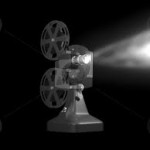 Dan Walker on Film
Dan Walker on Film
This DVD review of “Life of Pi” — which I reviewed when it opened in theatres and before it’s well-deserved four Academy Award wins (Director, Cinematography, Visual Effects, Original Score) — is in response to the second part of John’s comment on the write-up I did on media overkill following the senseless and tragic Boston Marathon bombings
Don’t read this until after you’ve seen the movie.
Dear John,
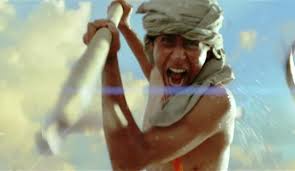 I just watched “Life of Pi” a third time at home. Not one aspect of the film — except its novelty — dissipates or lessens even minimally. Very much the opposite — and I definitely watch movies I like repeatedly — each viewing is more revealing. It’s such a dense, layered story and production.
I just watched “Life of Pi” a third time at home. Not one aspect of the film — except its novelty — dissipates or lessens even minimally. Very much the opposite — and I definitely watch movies I like repeatedly — each viewing is more revealing. It’s such a dense, layered story and production.
The first time I watched it with my projector displaying a 10-foot (diagonal) picture. Rather than purchase a screen, I put up a white sheet — what the hell, it’s in the basement . The sheet had creases from being folded and unused for years, which always bothered me during viewings. During my first home viewing of “Pi” and without pausing or turning it off, I took out my steam iron and got all the creases out*. (For the record, I hate ironing. The iron was still in its box and, in this one use, earned its keep.) For the majority of the movie’s running time, I was part of the screen. To be that close to it and cranking the sound was a fascinating experience.
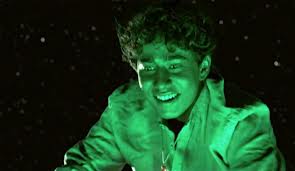 Pi was, at times, both visually and audibly yelling directly in my ear and I could touch Richard Parker and the meerkats. And I did. The magnificent night scenes with the whale and the montage that started with Richard Parker looking into the sea made me step back in absolute awe. So many great scenes/visuals, like the scene where Pi got knocked out of the boat then hovered underwater as he watched the ship go down. And watching sharks attack the drowning zoo animals, some of whom would never, ever be that vulnerable and helpless under normal conditions, in nature or even in the zoo. Despite having seen it before — and ironing the sheet as it played — it was still a very powerful, moving (actually, “absorbing” might be the better word) experience.
Pi was, at times, both visually and audibly yelling directly in my ear and I could touch Richard Parker and the meerkats. And I did. The magnificent night scenes with the whale and the montage that started with Richard Parker looking into the sea made me step back in absolute awe. So many great scenes/visuals, like the scene where Pi got knocked out of the boat then hovered underwater as he watched the ship go down. And watching sharks attack the drowning zoo animals, some of whom would never, ever be that vulnerable and helpless under normal conditions, in nature or even in the zoo. Despite having seen it before — and ironing the sheet as it played — it was still a very powerful, moving (actually, “absorbing” might be the better word) experience.
The cinematography Oscar was won in the first 15 minutes, if not during the opening credits. The dichotomy of the hummingbird buzzing around the sloth in the opening scene, which had to have registered on some level before, jumped out as simultaneously wondrous and comical this time.
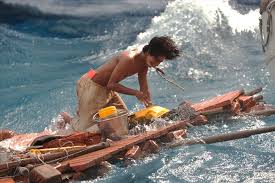 I have to wonder why Suraj Sharma didn’t get a Best Actor nomination. When you read a book – where you do the casting and visuals yourself – it’s pretty much a given the casting of the film will be disappointing. Sharma is more than I could have expected, which is emphasized with each viewing. He is in almost every scene — which I refer to as the “Vivien Leigh/Scarlet O’Hara syndrome” — and the range of emotions he displays is phenomenal, especially for someone who blue-screened most of his performance and had no prior acting credits. He pretty much carries the entire movie. More to the point, his performance (and role and movie) is so much better than Joaquin Phoenix in “The Master” and Denzel Washington in “Flight”. Both performances are lacking in range and subtlety, Phoenix more than Denzel. I think this is a case where being unknown gives credibility to Sharma’s performance but worked against his Oscar chances.
I have to wonder why Suraj Sharma didn’t get a Best Actor nomination. When you read a book – where you do the casting and visuals yourself – it’s pretty much a given the casting of the film will be disappointing. Sharma is more than I could have expected, which is emphasized with each viewing. He is in almost every scene — which I refer to as the “Vivien Leigh/Scarlet O’Hara syndrome” — and the range of emotions he displays is phenomenal, especially for someone who blue-screened most of his performance and had no prior acting credits. He pretty much carries the entire movie. More to the point, his performance (and role and movie) is so much better than Joaquin Phoenix in “The Master” and Denzel Washington in “Flight”. Both performances are lacking in range and subtlety, Phoenix more than Denzel. I think this is a case where being unknown gives credibility to Sharma’s performance but worked against his Oscar chances.
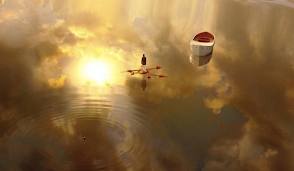 There are so many things about this movie that reward repeat viewings, like seeing the hyena appear in the very first shot of the opening credits. Richard Parker’s very first appearance is in a fountain reflection where a bird is the focus in that same opening. The significance of the father teaching his sons a lesson by making them watch Richard Parker kill a live goat as it’s tied to the tiger’s cage bars then saying, “The tiger is not your friend. When you look into his eyes you are seeing your own emotions reflected back at you. Nothing else.” That statement summarizes the main premise of the story. That powerful scene is a microcosm of the movie. The significance of the underwater swimming pool shots at the beginning of the narration, beautiful enough on their own even if they weren’t referential. You can’t even tell a camera angle is from below the water’s surface until a swimmer causes ripples before appearing in the shot. The wonderful blink-and-you’ll-miss-it double-entendre of the phrase “my irrational nickname,” alluding to the fact it was a self-fabricated (and self-preservationist) shortening of his given name of Piscine as well as a reference to the Greek letter, itself having a double (alphabetical and irrational/non-repeating numerical) meaning. The dance scene and the way he followed up with the girl. So wonderfully sincere and romantic with no hint of schmaltz in the same way his pursuit of her showed no self-consciousness, which would have gotten in the way of his focus. The way the Japanese insurance guys actually filed the Richard Parker story instead of the real one, which somehow hit me harder during this viewing than it did before. It’s the story we all wanted to believe in spite of our disbelief. The brilliant dinner conversation about religion. The fact that both the cook and the Buddhist are on the boat before Pi jumps into it. After going back on the sinking ship to to help Pi onto the boat, the Buddhist yells and motions for Pi to look upward in time to watch the zebra (the Buddhist’s reincarnation and, again, self-referential) jump onto the boat, the impact of which knocks the cook (the hyena) off the boat and begins the real story. When the orangutan (Pi’s mother) joins the boat, Pi asks her “Where’s your boy?” and her body language – turning back and solemnly looking toward the direction of the fatal tragedy – answers his question. The parting of mother and son as a result of the ship’s sinking mirrors what happened to him.
There are so many things about this movie that reward repeat viewings, like seeing the hyena appear in the very first shot of the opening credits. Richard Parker’s very first appearance is in a fountain reflection where a bird is the focus in that same opening. The significance of the father teaching his sons a lesson by making them watch Richard Parker kill a live goat as it’s tied to the tiger’s cage bars then saying, “The tiger is not your friend. When you look into his eyes you are seeing your own emotions reflected back at you. Nothing else.” That statement summarizes the main premise of the story. That powerful scene is a microcosm of the movie. The significance of the underwater swimming pool shots at the beginning of the narration, beautiful enough on their own even if they weren’t referential. You can’t even tell a camera angle is from below the water’s surface until a swimmer causes ripples before appearing in the shot. The wonderful blink-and-you’ll-miss-it double-entendre of the phrase “my irrational nickname,” alluding to the fact it was a self-fabricated (and self-preservationist) shortening of his given name of Piscine as well as a reference to the Greek letter, itself having a double (alphabetical and irrational/non-repeating numerical) meaning. The dance scene and the way he followed up with the girl. So wonderfully sincere and romantic with no hint of schmaltz in the same way his pursuit of her showed no self-consciousness, which would have gotten in the way of his focus. The way the Japanese insurance guys actually filed the Richard Parker story instead of the real one, which somehow hit me harder during this viewing than it did before. It’s the story we all wanted to believe in spite of our disbelief. The brilliant dinner conversation about religion. The fact that both the cook and the Buddhist are on the boat before Pi jumps into it. After going back on the sinking ship to to help Pi onto the boat, the Buddhist yells and motions for Pi to look upward in time to watch the zebra (the Buddhist’s reincarnation and, again, self-referential) jump onto the boat, the impact of which knocks the cook (the hyena) off the boat and begins the real story. When the orangutan (Pi’s mother) joins the boat, Pi asks her “Where’s your boy?” and her body language – turning back and solemnly looking toward the direction of the fatal tragedy – answers his question. The parting of mother and son as a result of the ship’s sinking mirrors what happened to him.
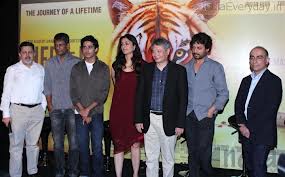 Then, in its own category entirely, is the triumph of Richard Parker. The most difficult, essential and convincing effect of the entire movie is, like Sharma’s performance, so much better than I imagined it could be. The attention to detail — physically, audibly and mentally/emotionally — goes far beyond what I visualized when I read the book. You always believe it is a real tiger in every way, down to the very last subtlety. As beautiful and striking as he is from head to tail, you always focus on his eyes, which go straight through you and stay with you after the movie ends. The subtleties and not-so-subtleties of Richard Parker’s mouth help convey his every reaction/emotion. His face as he swims toward Pi after jumping off the boat in an attempt to catch a dorado/dolphin/mahi mahi. (For that matter, Pi’s face in the same scene.) The scene when he returns to the boat when Pi calls him on the mangrove island — so responsive, willing and compliant — implying complete and well-earned trust in Pi, is incredibly poignant. Or the view of him from behind sitting up on the boat, staring at the island at night as Pi was deducing that the island was eating its inhabitants. Richard Parker understood before Pi did. If Pi were as attentive as Richard Parker, he’d have noticed and accompanied the tiger to the boat. And in his very last scene, his matted and almost-gray coat, the staggering, stretching, weak-yet-focused walk to the jungle, the long pause without looking back at Pi before casually and intently vanishing into the palm trees was at least the equal of the scene where you were forced to really focus on Daniel Day-Lewis’/Lincoln’s (who could tell the difference?) slooooooow, lanky gait, which itself was jarring and mesmerizing, almost disturbing. Only at the end do you realize it’s a metaphor for the way Pi and his father parted without closure and without Pi being able to thank his father for the lessons he taught Pi. Without those lessons, Pi wouldn’t have been able to survive his ordeal. You have to watch the movie repeatedly to get the most out of it because it references itself so often and significant things happen so quickly they don’t have time to register because the next scene demands your full attention.
Then, in its own category entirely, is the triumph of Richard Parker. The most difficult, essential and convincing effect of the entire movie is, like Sharma’s performance, so much better than I imagined it could be. The attention to detail — physically, audibly and mentally/emotionally — goes far beyond what I visualized when I read the book. You always believe it is a real tiger in every way, down to the very last subtlety. As beautiful and striking as he is from head to tail, you always focus on his eyes, which go straight through you and stay with you after the movie ends. The subtleties and not-so-subtleties of Richard Parker’s mouth help convey his every reaction/emotion. His face as he swims toward Pi after jumping off the boat in an attempt to catch a dorado/dolphin/mahi mahi. (For that matter, Pi’s face in the same scene.) The scene when he returns to the boat when Pi calls him on the mangrove island — so responsive, willing and compliant — implying complete and well-earned trust in Pi, is incredibly poignant. Or the view of him from behind sitting up on the boat, staring at the island at night as Pi was deducing that the island was eating its inhabitants. Richard Parker understood before Pi did. If Pi were as attentive as Richard Parker, he’d have noticed and accompanied the tiger to the boat. And in his very last scene, his matted and almost-gray coat, the staggering, stretching, weak-yet-focused walk to the jungle, the long pause without looking back at Pi before casually and intently vanishing into the palm trees was at least the equal of the scene where you were forced to really focus on Daniel Day-Lewis’/Lincoln’s (who could tell the difference?) slooooooow, lanky gait, which itself was jarring and mesmerizing, almost disturbing. Only at the end do you realize it’s a metaphor for the way Pi and his father parted without closure and without Pi being able to thank his father for the lessons he taught Pi. Without those lessons, Pi wouldn’t have been able to survive his ordeal. You have to watch the movie repeatedly to get the most out of it because it references itself so often and significant things happen so quickly they don’t have time to register because the next scene demands your full attention.
The visual of Pi killing the mahi mahi was powerful and reminiscent of the scene in “Avatar” when a beast was killed and the killer felt a bond with it, not the brutality you would expect after a killing. “Avatar” was not necessarily a great movie but it had some good moments and a great message — something about bonding with the planet.
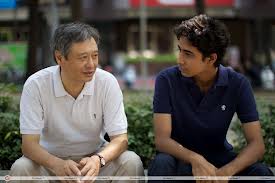 Every time I see the movie I’m more glad Irfan Khan was cast as the adult Pi. He’s so great every time I’ve seen him. Always so sincere. More than sincere. Sincerer. Sincerest. I resented his scenes with Rafe Spall the first time I saw the film but accept them more with each viewing. They’re (obviously) not in the book and they disrupt the flow of the story but I understand now that the intensity of the story really requires a break every once in a while and the narrative is better each time. Without those breaks, you’d forget to breathe for most of the movie. I even appreciate Rafe Spall’s performance more each time. If he were any more than the tofu – only able to reflect what’s around him — presence he is, he would be distracting. (His dad, Timothy, by the way, should have been cast in the recent Hitchcock film. He’s built for it. Hey, that works on two levels, like the letter pi.)
Every time I see the movie I’m more glad Irfan Khan was cast as the adult Pi. He’s so great every time I’ve seen him. Always so sincere. More than sincere. Sincerer. Sincerest. I resented his scenes with Rafe Spall the first time I saw the film but accept them more with each viewing. They’re (obviously) not in the book and they disrupt the flow of the story but I understand now that the intensity of the story really requires a break every once in a while and the narrative is better each time. Without those breaks, you’d forget to breathe for most of the movie. I even appreciate Rafe Spall’s performance more each time. If he were any more than the tofu – only able to reflect what’s around him — presence he is, he would be distracting. (His dad, Timothy, by the way, should have been cast in the recent Hitchcock film. He’s built for it. Hey, that works on two levels, like the letter pi.)
Mychael Danna’s score emphasizes what happens on-screen beautifully. I’d single out the Indian-influenced parts at the beginning of the movie but the score was strong, effective and moving all the way through the movie to its end.
As the Oscar he won – against tough and well-deserving competition — attests, none of what I reference in this review could have happened without Ang Lee’s direction and, more accurately, vision. That Oscar says more about what Lee accomplished than I can articulate.
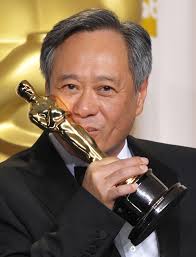 I got it: Put “Because of Ang Lee…” before every paragraph and before most sentences of this writing.
I got it: Put “Because of Ang Lee…” before every paragraph and before most sentences of this writing.
I reference the movie’s Oscar winners but that doesn’t mean every aspect of the movie wasn’t great and convincing, including the other actors and technicals. They were.
Thanks for posting your comment to my non-movie rant, John. The comment is what made me pull out “Life of Pi” tonight (Saturday, and I finished it when I woke up at 2am).
I inspire you, you inspire me. That’s called a reciprocal relationship, which how all relationships should be.
Dan
I’m going to go back and see what I wrote in my review for the movie’s theatrical release. I hope I didn’t repeat myself too much.
*I’m terrible about ending sentences with a preposition.
See? I just ended that sentence with “a preposition”.
I just did it again.
“R.I.P. Ray Harryhausen 1920-2013”

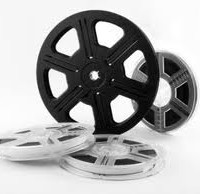
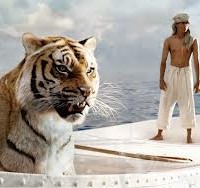
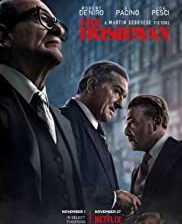


Wow, this review was more interesting to me than the movie itself. Now that Dan brought up all these points that I missed, I want to see it again on DVD.
I read the comment before I saw the name of the poster, which made me laugh really hard because it looks like I’m complimenting my own article. I actually know the poster so, Dan, let me know what you think when you watch “Pi” again on DVD and having read my write-up.
Finally, I finished seeing the film – having read the book – Bravo Dan – outstanding review.